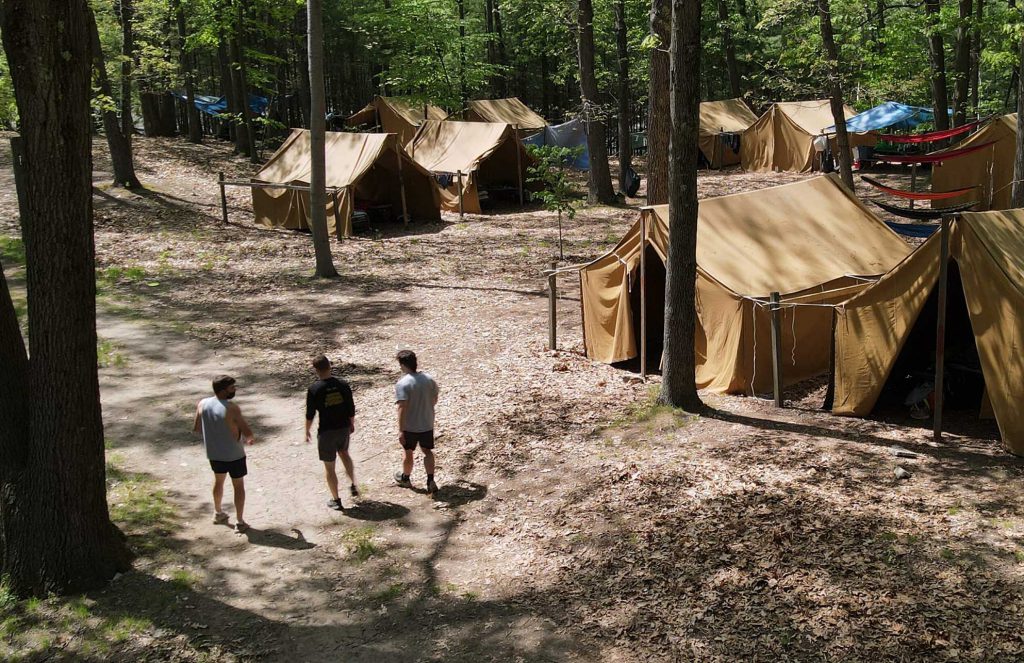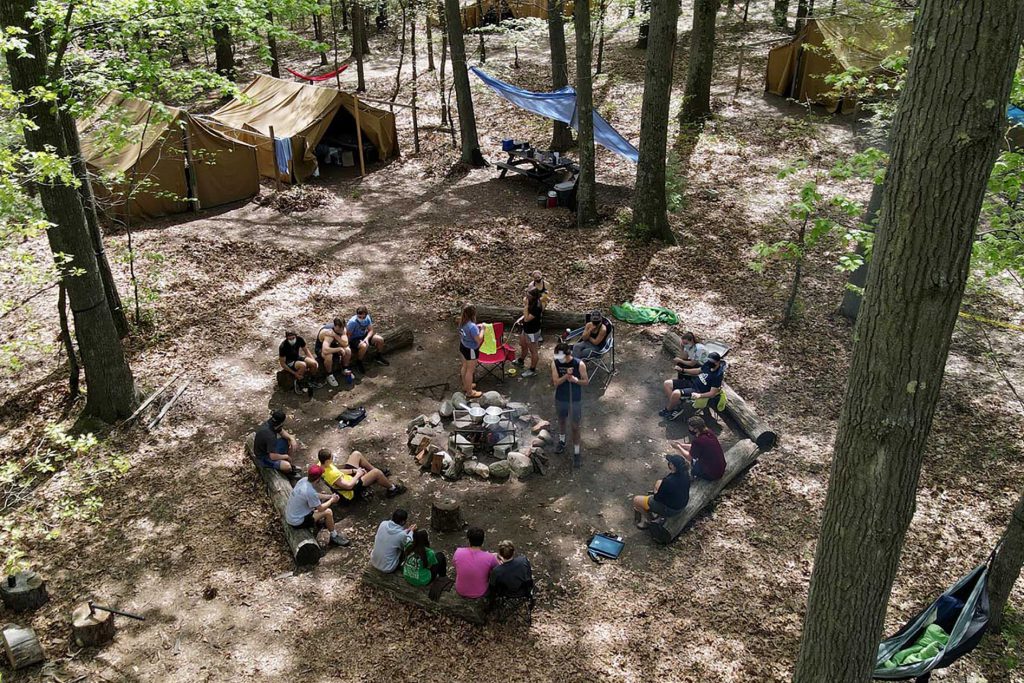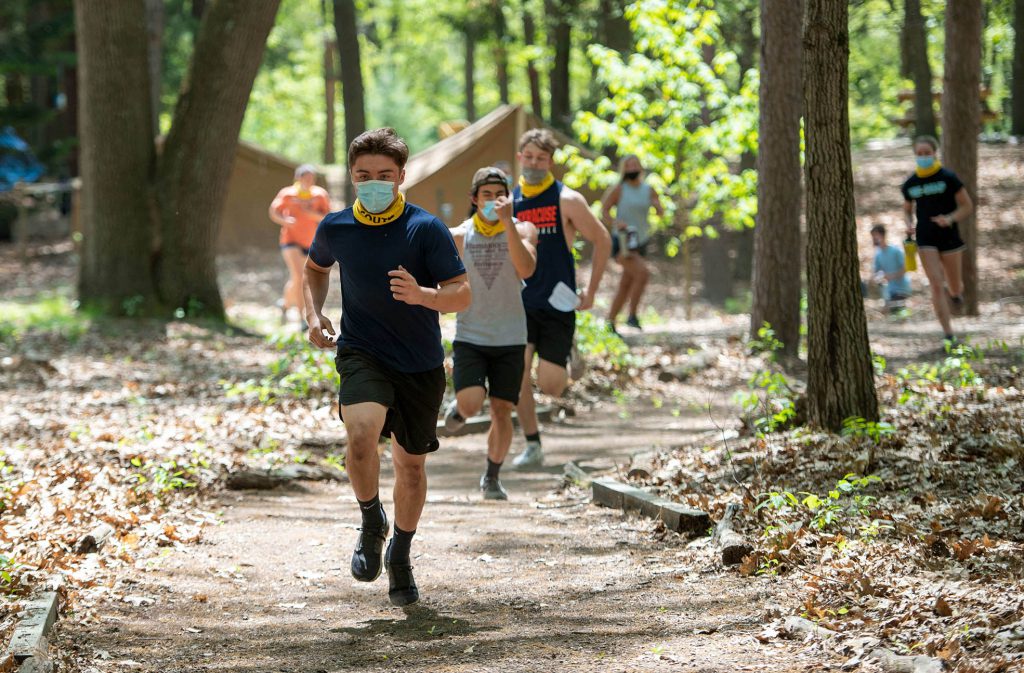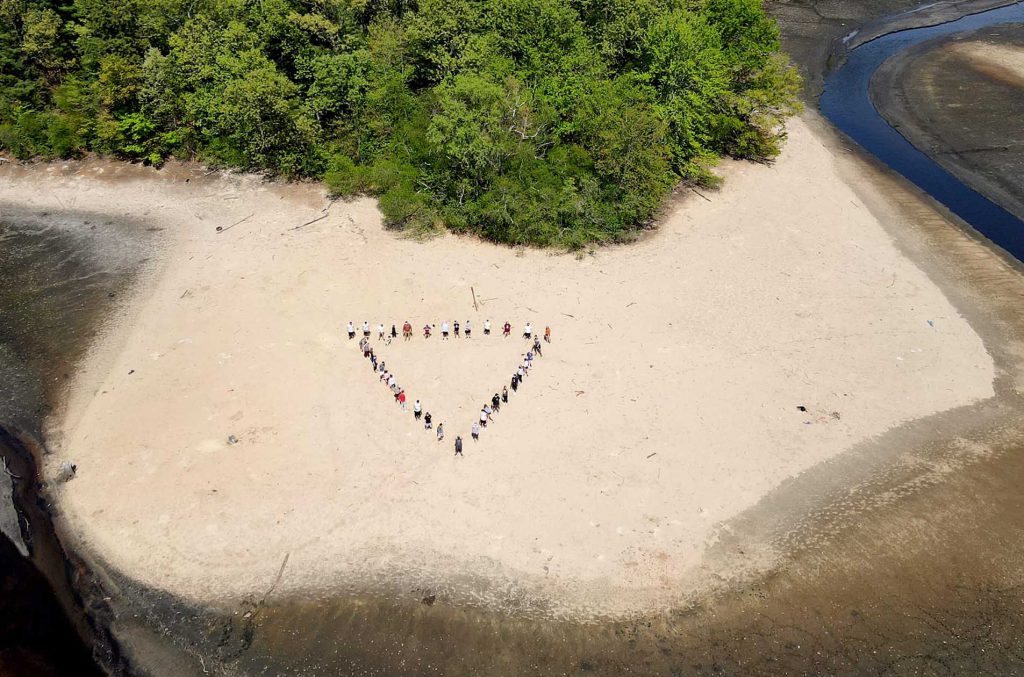Editor’s Note: A version of this blog originally appear on Ted France’s personal Facebook page.
Someone asked me, what have you learned at Outdoor Pursuits? Why is it important to Springfield College 92 years after the first class?
My response:
By being Springfield students and alumni, we have all accepted the immense responsibility for the practice and stewardship of not only knowing about our Humanics philosophy but, also, embodying it.

So, what can I share about the journey that thousands of students have made at camp, and the connection to our learning in subsequent years? Probably not as much as you wish, as these have been personal journeys. I can, however, offer my observations, which I hope will provide a moment of pause and reflection, to help provide greater insight and appreciation for what a blessing our camp and our entire Springfield College experience are for us.
What is Humanics? After reading the early works of Dr. Seth Arsensian, the first Distinguished Springfield Professor of Humanics (DSPH), and reviewing numerous other DSPH lectures, I recognize that our Humanics philosophy is a uniquely defined concept, one that is distinguishable and defined by both our individual and our collective actions.

Here is what I see upon that review: First, it is human-centered. This means that all we learn and do is focused on the whole person and ones relationship with self, others, and the environment. Specifically, we focus our learning and actions on these relationships to improve the human condition for others. Second, the knowledge of Humanics is for the welfare of others. The ultimate goal for Springfield College is to educate those who will improve the human condition by leading intentionally to lessen suffering, improve acceptance, improve health, and live more virtuously and with greater wisdom. I believe that everything we need to know is out there waiting for us to discover it, experience it, and act on it in service to others in order to improve the human condition. Third, service is the hallmark of our professions, all of which are founded on leadership. Our brand of leadership in service is not best portrayed on a brochure, post, or tweet. This attempt to distribute our Humanics philosophy often trivializes the uniqueness. Our Humanics philosophy is best disseminated through experience and action, a difficult and arduous task. Lastly, Humanics is more about assets than deficits. Our students, faculty and staff, and alumni have a genuine belief in the people we serve. A belief in a grand potential that each person we serve embodies, a potential that can be unleashed with support and opportunity.

So, Humanics is a philosophy of teaching, learning, and leading that is human-centered, a philosophy through which knowledge is discovered with the goal of improving the human condition. We practice this philosophy through our professions, all which are grounded in leading in service and founded on a belief in human potential.
Why is camp important? Camp is human centered. We authentically experience relationships with self, others, and the environment. Yes, we learn outdoor skills, but we learn so much more. In the end, I always hope that we leave camp with renewed purpose to lead intentionally with greater wisdom and virtue to improve the human condition. At camp, we serve others. It is a culture of a community of service. We care for others, we live honestly, we demonstrate respect, and act responsibly to embed service in our daily actions. Camp is here for us to examine our potential and discover our assets. Our high standards and rigor are more than a GPA and are founded on human interactions; our rigor and high standards are defined through our empathy and support for others.

Our world continues to change, as does our College. Outdoor Pursuits is very different today than it was 5, 10, 15 or 33 years ago when it was Freshman Camp. The changes, however, are more superficial than profound. The activities, games, and events may change, but the experience, the relationships, the boundless opportunities that provide structure for reflection and learning remain the same. It has been intentional–in all ways–for the last 92 years: educating students in Spirit, Mind, and Body for leadership in service to others. This is what I have learned at Camp and why I think it is important.







